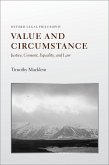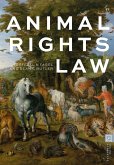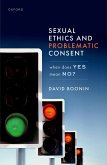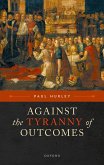Four values--justice, consent, equality, and collective decision in the form of law--have profoundly shaped the practice of law in the twentieth century and beyond.
Value and Circumstance revisits these political and moral ideals, uncovering the relationship between value and the moment. Each of the four key subjects is explored by returning to first principles in a way that invites reflection on the nature and functions of morality itself. The author claims that there is a deep and ongoing connection (and sometimes a dialogue) between the ideal and the everyday. As such, each of those things can be fully understood, appreciated, and pursued only in partnership with the other, even in cases when that partnership is unspoken and unacknowledged. Moreover, the book argues that sound moral comprehension is immanent in experience and engagement. We learn fully what justice calls for by doing justice; learn consent properly through practising consent; learn just when, in what manner, and in what domains to pursue equality through engaging with the prevailing equalities (both secured and unsecured) of our particular times and places; and learn what law should look like only by deciding what law is to be. In this dynamic, the moral world is steadily enlarged by our ordinary engagement with it. We construct and draw upon the realm of value, to which we are accountable for our flourishing. We cannot live well with reference to the ideal alone.
Dieser Download kann aus rechtlichen Gründen nur mit Rechnungsadresse in A, B, BG, CY, CZ, D, DK, EW, E, FIN, F, GR, HR, H, IRL, I, LT, L, LR, M, NL, PL, P, R, S, SLO, SK ausgeliefert werden.









